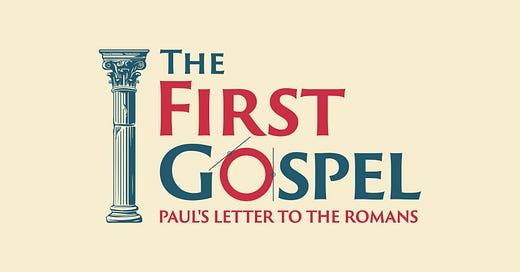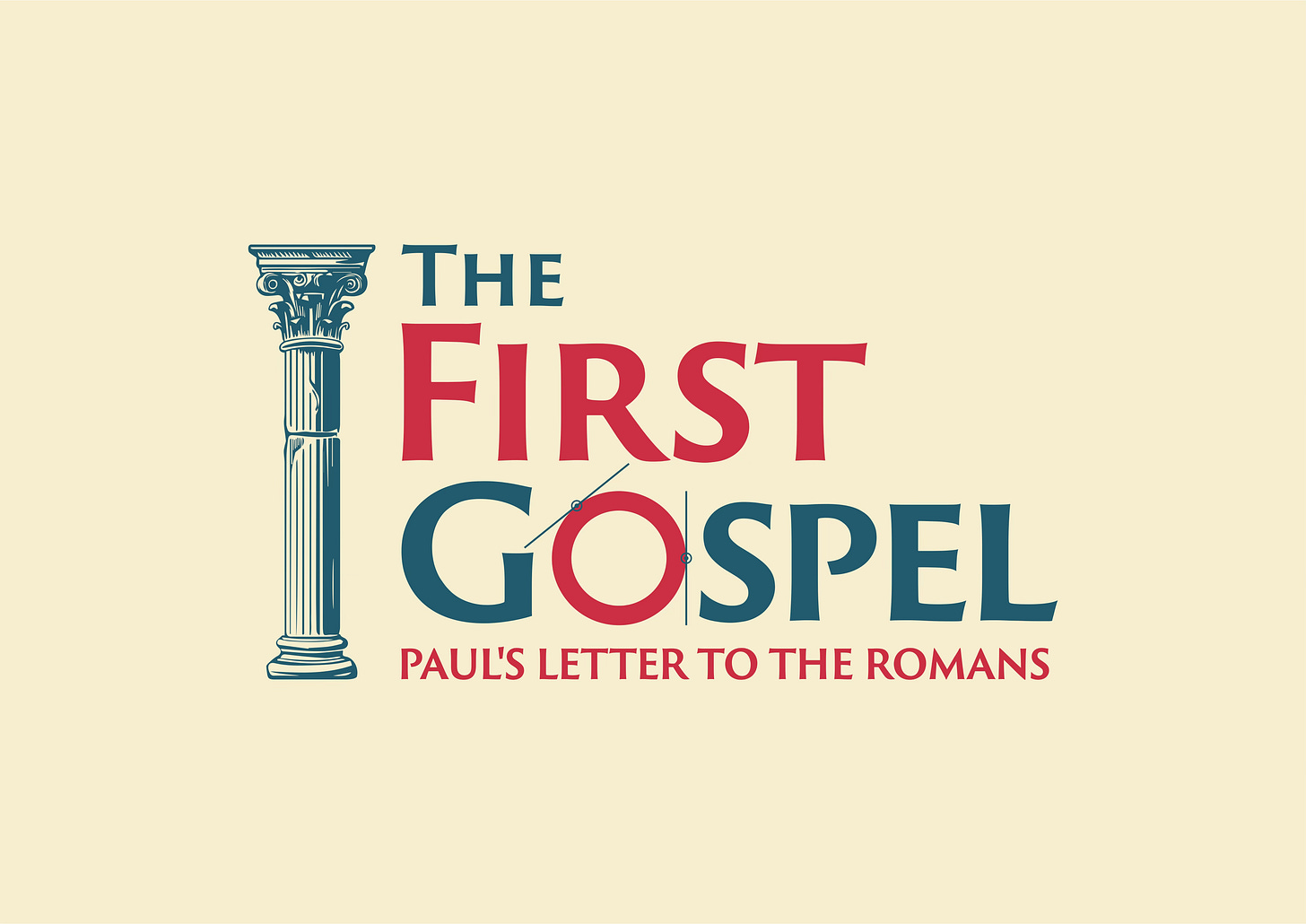Romans 4.1-5, 13, 16, 17-25
Over twenty years ago, I was part of a captive audience for an introductory class on homiletics. The only thing worse than being subjected to novice preachers is being forced to listen to novice preachers who think they’re great preachers. One afternoon this belligerently confident, hyper-evangelical classmate preached his “sample sermon” before the homiletics class. He took as his scripture text the Lord’s first promise to Abram:
“Now the Lord said to Abram, “Go from your country and your kindred and your father’s house to the land that I will show you. I will make of you a great nation, and I will bless you, and make your name great, so that you will be a blessing.”
For twenty minutes my classmate preached about Abram’s leap of faith, leaving his home in Haran as an elderly man to venture out to the land the Lord had yet to disclose to him.
The rookie preacher’s sermon was frenetic.
His delivery was demonstrative.
His zeal for the Lord was palpable.
And his urgency for us to share it was lined across his face.
He clearly thought he was the superior preacher to all of us and, admittedly, his affect was effective. However, a few minutes into the sermon, I noticed the smooth, bald head of our homiletics professor, Dr. James Kay, had turned a crimson red. A few minutes later, Dr. Kay looked restless and irritated. A couple of moments more and Dr. Kay, an amateur boxer, appeared as though he wanted to clock the preacher hard enough for an eight count.
Once the sermon was finally over I saw that what I had taken to be Dr. Kay’s exasperation was in fact righteous indignation. Needless to say, it was not the reaction the beaming student preacher had anticipated.
“Do you realize,” Dr. Kay thundered, “not one of your sentences had God as the subject?!”
The point seemed lost on the preacher.
“God was not the subject of any of the verbs in your sermon,” he explained.
Blushing, the preacher remained confused.
“Abraham is not the primary protagonist in the story of Abraham anymore than you are the primary protagonist in the story you call You. God IS. You turned a word about God into a lesson about us. IT’S ABOUT GOD!”
It was a mic drop moment before mic drops were memes.
“So, what shall we say that Abraham our forefather learned? For if Abraham was justified on the basis of his works, he then has a basis for boasting. But so far as God is concerned, that is not the way it happened. For what does scripture say? Abraham believed God and that was regarded as righteousness.”
Imagine that you are in a bookstore, perusing the shelves, and you come upon a new biography of another Abraham, Abraham Lincoln. Intrigued, you pull the biography from the shelf and start to read it. What you discover inside surprises you. The biography repeatedly describes Lincoln as the first Republican president, the inaugurator of a line of Republican leaders running to the present day. Yet the same biography never once mentions Lincoln’s debates with Stephen Douglas, his leadership of the Union during the Civil War, or his issuing the Emancipation Proclamation. On the basis of what the biographer omits, you would certainly suspect the author was up to something strange.
Likewise, in turning to the story of Abraham the apostle Paul excludes the very items about Abraham for which Israel celebrated him.
Paul repeatedly points to Abraham’s trust in God.
But Paul never once mentions Abraham’s obedience.
Here in his epistle, Paul has just signaled the gospel with his big, “But now!” The grave, by grace, is not the end. Somehow, Paul proclaims, at the site of sin there is a redemption that reveals and a grace that gives righteousness. This gospel not only entails reconceiving the possible but also rereading the past. To his astonishment, Paul discovers that “pages from the past are proclamations of the gospel.”
Specifically, Paul zeroes in on a single verse, “Abraham trusted God and that was regarded as righteousness.” Notably, Abraham’s faith justified him three decades before Abraham and his household received the sign of covenant membership, circumcision. As Frederick Dale Bruner notes, the apostle “loved this calendric and cosmic fact.”
This is not to suggest the Bible is silent on the matter of Abraham’s works.
The Book of Genesis narrates Abraham’s obedient migration from Haran.
The Book of Genesis narrates Abraham’s obedient circumcision of himself and his household.
The Book of Genesis narrates Abraham’s obedient binding of his son, Issac.
But none of these acts of obedience make Abraham righteous before God.
The rabbis regarded Abraham as the chief example of righteousness, and they took Abraham’s righteousness to be rooted in his obedient works. For example, the Book of Sirach praises Abraham for keeping the law and remaining obedient to God when tested. The Book of Jubilees extols Abraham for exhorting others to obey all of God’s commands. Even the New Testament books of James, Hebrews, and Acts praise Abraham for his actions obeying God’s commands. But none of these acts of obedience are what scripture identifies as the basis for God justifying Abraham.
Indeed, at the moment God calls him and for three decades more, uncircumcised Abraham simply is the ungodly.
Nevertheless, the Logos encounters Abraham.
The Lord brings him outside.
And Christ promises him, “Look at the sky. Number the stars— if you’re able to count them. So shall your offspring be.”
I’m going to have a whole world through you.
Despite their advanced age and the patent absurdity of the promise, Abraham trusted God to perform the impossible. And so trusting, God regarded Abraham as righteous.
From the surprising and incongruous place of cross and resurrection, Paul now sees an order to Abraham’s story hitherto overlooked.
Abraham believed God before Abraham obeyed God.
Abraham trusted God’s promise before Abraham followed God’s command.
Abraham relied upon God to realize this promised future before he stepped out towards it himself.
Abraham’s belief came before his obedience.
But even more importantly, back before Abraham’s belief is the unthwartable will of God which manifests in his gracious promise to Abraham.
Put differently:
God’s determination to have a world preceded God’s promise to Abraham.
God’s promise to Abraham preceded Abraham’s faith in God.
Abraham’s trust in God’s power to perform the impossible empowered Abraham's obedience.
It all starts with God. It’s all contingent upon God.
Abraham’s faith would be delusion had not God first encountered him with impossible promises and then performed them.
By repeatedly pointing to Abraham’s faith in God, Paul in fact points to Abraham’s God.
Thus, by repeatedly pointing to Abraham’s faith in God, Paul in fact points to Abraham’s God. That is to say, the primary protagonist in the story of Abraham is not Abraham; Abraham is the object of God’s gracious will and rectifying work.
“So, what shall we say that Abraham our forefather learned?” the apostle asks his audience before answering his own question. Abraham discovered that the God who raised Jesus from the dead is and ever has been and always will be the one who, by grace, promises to perform the impossible so determined is he not to be God without us.
A friend of mine teaches a class at Duke Divinity School in which the first assignment every year is for the students to write an essay describing how the risen Christ is the only explanation for why they are enrolled in seminary. After he read one student’s submission, he called me up and said to me:
“Jason— you’ve got to meet this guy. His name is Slice Penny if you can believe it. You’ve got to meet him. It’s damn hard to deny the living God when Jesus leaves as many fingerprints as he has on Slice.”
Slice grew up on third base in Charlotte, North Carolina with a silver spoon in his mouth. His teenage years were such that after high school he went as far away as he could for college in order to rebrand himself, putting the drugs and the booze in the rearview mirror.
“So I went to Florida State,” he told me one afternoon a few months ago, “And, you know, I had this realization. As soon as I got out of my parents's car, I looked down and I saw my shadow, and I had an eerie feeling because it was like, no matter where I went, there I was.”
To tamp down the darkness within him, Slice lost himself in busyness. By the time he ascended to the Inter-fraternity Council’s presidency he was not only drinking too much and doing cocaine, he was dealing drugs for a cartel, extorting fraternity presidents to coerce their brothers into buying drugs exclusively from him.
“I always had an entrepreneurial spirit about me,” Slice told me, “When I knew I was in over my head, I went to to my drug dealer's house and there was a frighteningly massive amount of drugs there. I said, “Thanks for this wonderful opportunity, but I think our business partnership has run its course.” He laughed at me and threw a huge duffel bag at me and said, “I'll see you in two days.” Feeling trapped, alcohol became my master.”
Slice then told me how he went home to North Carolina to dry out. He made it two days with no drinking or drugs. On the third day, he was standing in his parents’s backyard by the swimming pool when he went into alcohol withdrawal.
“I was standing in my parents backyard, saying, “I gotta go back to school. I gotta go back to school.” And my whole body locked up and I fell into the swimming pool, sank to the bottom.”
Slice told me that his Mom saw him convulsing on the bottom of the pool.
So she jumped in after him.
“I don't remember any of this,” he said to me, “but she told me my body was convulsing so hard she couldn't get a grip and I was too heavy to lift up. And she told me that every time she came up for air, she would scream, “Jesus, help me!”
Slice was on the bottom for two minutes. When his mom finally brought him up, she was convinced she was holding her dead son. When she came up with him from the bottom, she saw two sets of feet on the deck of her pool. They belonged to two guys who just happened to cut their golf game short at the nine hole because their wives had complained that morning that they spent too much time on the course.
The nine hole is the one behind Slice’s house.
They heard his mother scream for Jesus.
They rushed to her.
They pulled him from the pool.
His lips were blue.
One started CPR while the other called the rescue squad.
A day after Slice was released from the hospital, DEA agents knocked on his parents’s front door to arrest him for drug trafficking.
“My mom fell to the ground crying,” he told me, “And in that moment, there was this strange dichotomous sensation. “My God, my life is over. But also thank you, God.”
Upon conviction, a clerical error labeled Slice as an illegal alien so he got sent to the deadliest maximum security prison in Florida.
“I felt like a house cat thrown in the jungle with lions,” Slice told me, “I got to that prison and I prayed, “God do what you promise to do, and help me to trust and believe you will.” The next day I met Ricky Goldsmith, in for twenty-four years for murder, who preaches every Sunday. The next night I prayed, “God, why did you bring me here?” And I heard God say to me, “I brought you here so Ricky could get right.” You know, you'd never guess it, but it was in prison that God really rectified my life, changed my heart, put me right. It was a double serving of humble pie. And it wasn't sweet to eat, but it's been nourishing.”
Like Job before the Whirlwind, his testimony left me mute.
Slice looked up at me and he said, “I look back at my life. And I used to think, “Why did I do what I did? How am I alive? Where am I headed?” But now I can see this is the story God was writing for me all along.”
“…someone who trusts the One who justifies the ungodly, that person’s faith is regarded as righteousness.”
The conclusion of Romans 3 is quite “possibly the most important paragraph ever written” and Abraham is its corroborating witness.
Not only, these chapters of Paul’s epistle supplied the source material for the slogan of the Protestant Reformation, “We are justified by faith apart from works.”
The slogan is not the gospel but it is the rule for speaking gospel. The problem with the slogan, however, is that very often the church presents it as the polar opposite of what Paul intended, which is to say faith— belief— becomes but another work. Just so, we imagine:
“There is a list of things which God really wishes we would do— be kind to animals, be generous to the poor, be against war and injustice; that on the list is “believe in God” and that, as a favor to Jesus, God has decided to let us off the rest of the list if we will do just this one.”
This is the precise opposite of what Paul and, with him, the Reformers seek to say. As Robert Jenson writes, to offer salvation conditional on your belief (If you have faith, then God will justify you) “peddles grace more cheaply than did the worst medieval indulgence sellers.”
To offer salvation conditional on your belief “peddles grace more cheaply than did the worst medieval indulgence sellers.”
The apostle Paul’s epiphany, the whole point of the Reformation, was that the gospel promise is every bit as unconditional as God’s promise to Abraham is inviolable. Jenson argues that the language Paul uses in this passage— faith and justification and righteousness— are now so heard in contradiction to their original intent that we should eliminate the terms altogether. But, seeing that we cannot jettison them, Jenson argues we should deploy them in a subversive manner that recaptures the shock of Paul’s intent.
“To use a drastic example,” Jenson writes, ““justification by unbelief alone” could be, now, the only way to make the Reformation point with this language.”
I’m going to have a whole world through you.
God is the subject of the sentence called gospel. God is the primary protagonist of the salvation story. This becomes clear when you see that the Reformation slogan (“We are justified by faith apart from works”) is merely the doctrine of election stated with respect to us. The doctrine of justification uses passive voice sentences while the doctrine of election uses active voice sentences. But they both make the same claim.
To say that we are regarded righteous by faith and not by works, passive voice, is exactly to say in the active voice, “In Christ, by sheer incongruous gift, God is unthwartably determined to make you his own.
Not to trust his commitment is to dishonor him.
To trust his commitment is to honor him and, just so, fulfills the first table of the law, making you righteous.”
This just is the claim in God’s proper name: Father, Son, and Holy Spirit.
God is the God who determined himself to be for us and with us before there was a single one of us. God did not create the universe for the sake of creating it. God created the universe in order to rescue sinners and live in loving fellowship with them. As Robert Jenson summarizes Karl Barth’s doctrine of election:
“In his eternal decree, God decides to love the creature; therefore, God decides to create the creature…The act of creation is the carrying out of God’s decision before all time, his decision to love sinners. The creation exists as the necessary apparatus for the reconciliation of sinners.”
All of history is the unfolding of this eternal decision.
This is why when Paul affirms Abraham’s faith in verses seventeen to twenty-two, Paul does not focus on Abraham believing the content of the promise. Instead Paul highlights how Abraham faith’s is that which witnesses God’s actions in the world, “giving life to the dead and calling into existence the things that do not exist.”
Faith is that which witnesses God’s actions in the world, “giving life to the dead and calling into existence the things that do not exist.”
The Reformation slogan is not an explanation for how you get saved. The Reformation slogan is the announcement that God is determined to save you. It is not as though your future hangs in the balance, contingent on your belief or unbelief. You exist for no other reason than to be loved by God. To “glorify God and enjoy him forever” is your destiny. And God is determined to leave as many fingerprints on you as necessary to get you there.
“So how did you end up at Duke Divinity School?” I asked Slice.
He smiled and said, “My first Sunday home at the church, Bishop Leland was in worship. The church gave me a Bible and asked if I had any testimony to share. I don't remember what I said. I remember feeling the Holy Spirit on me. Afterwards, Bishop Leland asked me in front of everybody, “Is God calling you?”
“Then what?”
“A little while later,” he said, “I was working and trying to finish my degree when the district superintendent called me. He said, “I’ve got this church way out in rural North Carolina that needs a pastor, and they tell me that what they really want is a twenty-six year old recovering drug addict and alcoholic who’s just come home from prison for drug trafficking, still living at home with his parents, and taking classes at the community college. You sound just perfect for them.”
I laughed.
“So I took the call,” Slice told me, “And it’s like God created a whole new life out of nothing. Not long after, I got a scholarship to Duke. I cry walking to class just about every day because someone like me has no business in such a place. The only explanation is God.”
“Hoping against hope…Abraham believed the God who gives life to the dead and calls into existence the things that do not exist.”
Dr. Kay had just thundered his mic drop moment in our homiletics class.
The day’s preacher nodded sheepishly while we all jotted down the professor’s point. Then Dr. Kay surveyed the classroom like we were all sitting ringside and paying attention to the final blow.
“The claim in your scripture text is not “We are all on a faith journey to God.” The claim in your scripture text is that “The author of our salvation is God.”
And then he wrote the claim on the white board, “The author of our salvation is God.” Capping the marker, he turned to us and said, “Preachers, diagram your sentences. If God is merely the object of the sentences you speak— if God is not the subject of sentences— then you are not proclaiming the God who justifies the ungodly.”
Robert Jenson writes:
“It is important to see the size of the assertion Paul makes here. The choice of a breakfast cereal— and the movements of Communist armies— all take place solely insofar as they serve the movement of the special history of grace…if it were not for a hidden connection with God’s plan to reconcile sinners, these events would not take place.”
Which is to say—
I am not the one who, in a moment, will say to you, “Come to the table.”
God is your destiny.
The author of salvation is God.
In the End, your life— all of it, every bit of it, each difficult and beautiful part of it— just is the love story of how God finally won you to himself.


















Share this post